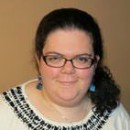- A
- A
- A

Popping My Disability Activism Bubble
Looking around at a corporate event I recently attended, I wondered if I was out of my element. Usually, any major events I go to are disability-related, but on this occasion, I was with people chosen to represent several major minority groups. My goal was to bring attention to disability issues, as it is a topic not often acknowledged even among social justice communities. It didn’t take long to notice, though, that the rest of the attendees had also come along with plans of their own to discuss the best interests of their groups.
It was a big wake-up call to be surrounded by minorities other than my own in a context specifically intended to call attention to the diversity in the room. As each of us discussed our perspectives, a question came to mind that I haven’t shaken since the event came to an end: How many of us are truly aware of oppression experienced by minorities outside of our own?
In a room full of passionate social justice activists, I hoped I would feel understood. And yet, I found that we were a sea of voices each speaking out on behalf of our own causes, not always quite grasping what the others had to say. This first hit me while listening to members of the Native American community address an issue they feel strongly about that I had previously only vaguely considered: the use of the word “redskins” as the name of a football team. Of course, I had read a while ago about the initiative to change the team name because the word is considered derogatory to Native Americans, but because I am so often in my bubble of disability activism, this was an issue far from the forefront of my mind. To be completely honest, when someone brought up the problematic nature of the “R-word,” my mind immediately went to the word “retard.” It took a moment for me to register that another community has a different “R-word,” and it wasn’t because I’m unconcerned about it; it was because I don’t often encounter opportunities to interact with communities of social justice activists from different minorities about issues beyond disability.
It was also quite clear that the numerous people at the event who didn’t identify as disabled hadn’t exactly taken much time to think about disability. During one session, I brought up the fact that disability is the only minority status that can be or become part of any person’s life at any time. This proved to be a revelation. Multiple people came up to me later that day to express that they had never considered disability in this way. One woman even told me I’d completely blown her mind.
In the few short days during this event that I spent engaging in such exchanges about key social justice issues, my activism bubble popped. I was reminded that I’m never done learning about the world around me, and I also saw how much work disability activists have ahead of us in educating the world around us. But I have once again returned to my bubble, focused on disability. This time, however, I have a new goal – to acknowledge and better understand the unique experiences of discrimination against all minority groups, while also acknowledging the ties at the core of our experiences and honoring the ways they converge.
Emily Ladau is a writer and disability rights activist whose passion is to harness the powers of language and social media as tools for people to become informed and engaged social justice advocates. She is the owner of Social Justice Media Services, which provides communications, outreach, and social media management services for disability-related organizations. Emily also maintains a blog, Words I Wheel By, as a platform to address discrimination and to encourage people to understand the experience of having a disability in more positive, accepting, and supportive ways. You’re welcome to connect with her on Facebook and Twitter.
Contact: Emily Ladau